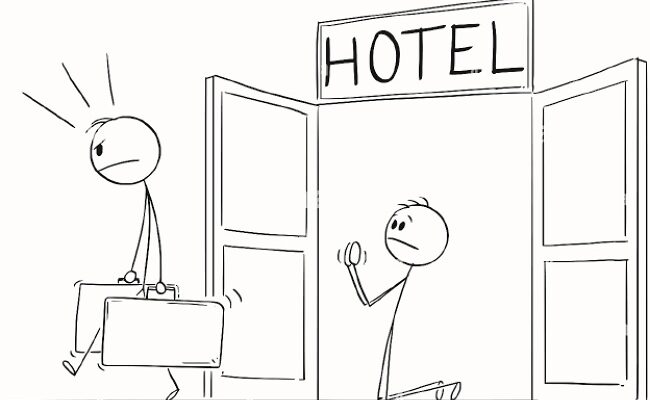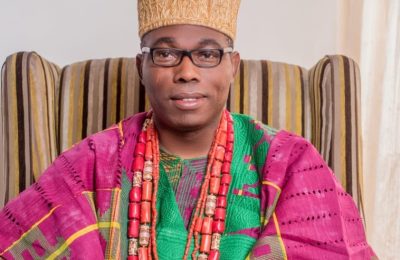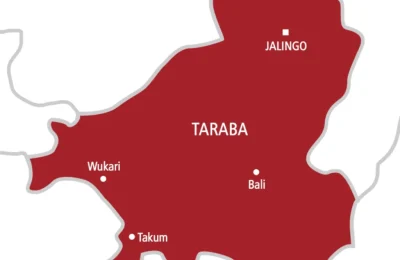ROTIMI IGE, in this feature, presents the reactions from disappointed clients of the hospitality industry in Nigeria, especially hotels, where many complain about not getting value for their money, and more often than not, expectations are cut short.
The hospitality industry in Nigeria is huge. This is buttressed by the fact that Nigerians naturally engage in leisure activities and generally are fun-loving people. The boom in the entertainment industry is also responsible for the demand for facilities that promote business and pleasure; hence the boom experienced investing in the hospitality sector.

Nigeria is expected to be the fastest-growing hospitality market with a projected 12 percent compound annual increase from 2019 to 2023 according to a PwC projection.
Globally, the tourism industry contributes about 10 percent to the global GDP. This is expected to rise in four years with significant upward movement in Mauritius, Kenya, Nigeria, and South Africa. In Nigeria, the contribution of travel and tourism to the nation’s GDP was 5.1 per cent in 2019. In 2020 however, the upward trajectory slowed down due to the Coronavirus pandemic.
It contributed 3.6 percent to Nigeria’s GDP in 2021, which was equal to around 16 billion U.S. dollars.
The World Travel and Tourism Council’s (WTTC) Economic Impact Report (EIR), however, in 2022, revealed that Nigeria’s travel and tourism sector’s contribution to GDP was forecast to grow at an average rate of 5.4 per cent between 2022 and 2032.
According to Statistia Research, in 2021, there were more than 2.4 million jobs in the travel and tourism sector in Nigeria. The sector is expected to scale up Gross Domestic Product (GDP) and create an average of 2.6 million employment opportunities yearly for the next decade.
According to the WTTC’s EIR, “The Travel and Tourism sector in Nigeria is expected to create 2.6 million new jobs over the next decade, doubling the number of those employed within the sector by 2032.”
The WTTC’s forecast shows that an average of nearly 260,000 new jobs would be created every year for the next 10 years, reaching more than 5.1 million.
Despite the decrease compared to 2019 due to the pandemic, travel and tourism accounted for nearly five percent of total employment in the country by 2021.
These statistics only show the potential within the industry. An increase in investments in the sector will only continue if certain issues raised by stakeholders are addressed.
Despite the positive indices within the tourism and hospitality industry, the absence of quality service delivery has remained an issue.
In the travel sector, bottlenecks to tourism growth include lack of internal airline connectivity, poor road network, poor marketing, lack of institutional coordination, limited skills and experience, lack of domestic tourism promotion, unfriendly visa policy, and limited ICT usage, among others.
In the hospitality sector which is the focus of the feature, many have complained persistently about problems in service delivery which ultimately create nasty experiences for customers.
“Creating value for money in many hospitality establishments seems not to be the focus for many investors in Nigeria today. They create a lovely ambience to invite fun-seekers but most times, such places lack adequate services and most importantly, basic expectations like good food”, Shofoluwe Adams, a hotel services critic told FRIDAY TREAT.
A general survey of reactions from people who patronise hotels and lounges in Lagos was quite revealing.
For Alfred Emeka, who visits Nigeria regularly from the United Kingdom (UK) on business, the hotel business, though booming in Nigeria, still lacks in vital areas of service delivery.
He said, “It usually starts from the gate. The security men and park assistants expect tips even when they aren’t sure you would eventually lodge. Sometimes, when I book online so that I am quickly attended to at the reception, I end up being delayed when I arrive. A general lack of coordination is usually the problem. I remember a time when I booked a room in advance and arrived at night only to be told that it had been allocated to another customer. The receptionist told me that as I didn’t arrive early, even when they hadn’t confirmed any cancellation from me, she booked another customer in my place to generate income for the night.
“I was livid. I was delayed for about 30 minutes and then offered a smaller room which was below my expectations. I haven’t returned there ever since”, he said.
Another respondent, Abubakar Sani shared his experience.
“I lodged in a very popular ‘big’ hotel in Lagos and expected a niceexperience owing to the hefty price tag. I settled into the room and dialed the kitchen. I made my order and was told it would be delivered in 20 minutes. I drifted off to sleep and woke up an hour later, wondering why my food was yet to be delivered. I called the hotel kitchen again and was shocked to learn that what was delaying my food was the plantain I ordered as a side supplement to the dish which, the chef said he sent someone to buy. I wondered how a top-rated international hotel would buy certain food supplies without proper inventory. When the food was eventually delivered with the main dish warm not hot, I was charged for room delivery but the time wasted wasn’t considered.
Worst of all, the food wasn’t tasty and the fish was bad,” he said.
Testimonies from other parts of the country also show that the scenarios experienced in most of the hospitality centres are almost the same.
Onyinye Charles, a model, stressed that investors must pay more attention to service delivery rather than just creating a beautiful ambience or marketing strategy.
“From what we see everywhere now, more attention is placed on building eye-candy edifices with inspirational interiors good for pictures and networking. However, basic services like good food, adequate and respectable staff or encouraging feedback reactions are mostly lacking. Most times, the food and drinks are overpriced and unworthy of the said tag. This is the reason why some places that may be less elegant but prioritise service or food delivery are usually highly patronised.
“In fact, the small bukas or restaurants, though not places one would want to spend a lot of time, usually serve better food than most of the big hotels in Nigeria,” she said.
The power supply issue has also negatively impacted many hotels, for instance. Khadijat Amosun told FRIDAY TREAT her experience earlier this year. I was to attend a funeral ceremony in Lagos and checked into a hotel to get ready for the event. To my amazement, at noon, when I arrived at the premises, they had no power. I was told that as the public power supply was yet to be restored for the day, and with the high cost of diesel, they usually powered their generators in the hotel at night.
“I enquired why they had upwardly reviewed their room and food prices but had not considered the importance of power supply to clients but my questions could not be answered. That night, their generators could not power the air conditioners as they had many rooms booked and so we had to manage with fans. I am sure most patrons would not return there just like I decided,” she said.
Also impacted by inadequate service delivery in the sector are online shopping/orders. The situation where ‘what was ordered’ versus ‘what was delivered’ has become a trending topic in Nigeria.
Service providers, according to many respondents, no longer respect the ‘customer is always right’ policy and would send items of lower quality, damaged or defective goods.
Delivery agents/conduits have also come under scrutiny as complaints have been rife about the attitudes and mannerisms of riders. While some would arrive late, FRIDAY TREAT received complaints where riders allegedly ate part of the food ordered by customers.
According to the agency tasked with treating consumer complaints in Nigeria, the Federal Competition and Consumer Protection Commission (FCCPC) says it has, since 2022, received over 100 complaints daily from consumers regarding poor services by firms and service providers, a figure that is relatively small for the whole country but significantly higher than the past.
The agency, formerly the Consumer Protection Council, said before now, it received an average of 50 complaints monthly, indicating low consumer rights awareness.
“As of today, we receive nothing fewer than 100 complaints in one day. This is because Nigerian consumers are becoming enlightened day by day,” FCCPC’s director of administration, Mohammed Aliyu, said during an engagement with consumer-related civil society organisations last year.
Nigerians frequently accuse service providers and private companies of mistreating customers and violating their rights. Yet, few follow through the process of filing complaints and seeking redress. The banking, telecoms and aviation sectors are the usually the most criticised sectors.
While the hospitality and tourism industry will largely continue to boom due to the increased investment by stakeholders, it is pertinent to accommodate and find lasting solutions to most of the shortcomings identified by patrons of the industry. After all, as it is generally said, ‘customers are the kings’ in business.







